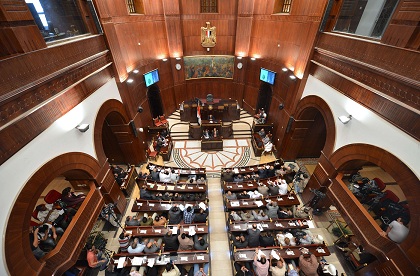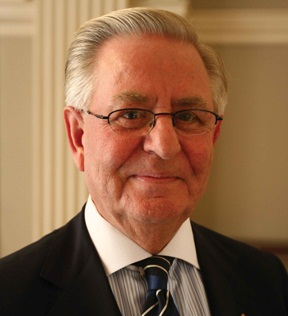
President Mohamed Morsy’s latest constitutional decree fulfils the revolution’s demands and the judiciary’s failure to punish wrongdoers must not be ignored, said Shura Council Deputy Speaker Tarek Sahry.
Sahry, who represents the Salafi Nour Party in the upper house of parliament, condemned the way opposition members criticised the decree.
“It is every citizen’s right to support or oppose [the decree] but nobody has the right to attack private property, especially those who were unsuccessful in the last election,” he said in reference to the attempts to burn down several Freedom and Justice Party offices.
He added that true revolutionaries were “unrelated to those committing thuggery in Mohamed Mahmoud [Street] in the name of the revolution.”
In a Sunday session of the Shura Council members of the upper house debated Morsy’s Thursday decree, which granted the president sweeping new powers. Members of the council’s Islamist majority were in support of the president.
Freedom and Justice Party representative Ezz El-Din El-Koumy said Morsy’s decisions were made to protect the country from domestic and foreign plots designed to disrupt stability. The decree should have been issued earlier, said El-Koumy.
“We must not forget how the legislative branch was suspended through an unfair ruling that dissolved the People’s Assembly,” he added, referring to a Supreme Constitutional Court verdict that dissolved the lower house of parliament in June.
El-Koumy started attacking the Judge’s Club, which held a general strike Saturday and declared an open judicial strike in response to Morsy’s decree, by saying it’s a social group for judges who should not get involved in politics.
Shura Council Speaker Ahmed Fahmy, also from the Freedom and Justice Party, the Muslim Brotherhood’s political wing, interrupted him and asked that specific groups not be named in the session.
Fahmy said that although he agreed with the president’s decree, he had hoped Morsy would consult other political groups before taking the decision and put the decree to a nationwide referendum rather than issuing it unilaterally.
His remarks were a response to Democratic Generation Party Chairman Nagy El-Shehaby who asked if the president even had the right to issue constitutional decrees now that the transitional period had ended.
Fahmy said that parliament is allowed to amend the constitution and since the president currently holds legislative power, he can do so, but ought have put the matter to referendum.
Member of Parliament Ahmed Abdel Rady criticised the opposition and said “the behaviour of the minority is uncivilised.”
“If there were to be a clash then the dead will outnumber the living,” he added.
President Morsy’s decree on Thursday gave him sweeping new powers and ensured his decisions may not be challenged by court. One of his decisions was to declare the Shura Council inviolable.
The council was facing a court case and a verdict dissolving it was anticipated. Although currently weaker than the lower house, the new constitution will give the Shura Council more powers making it equal with the People’s Assembly, which will be renamed the House of Representatives.
The Muslim Brotherhood has a 58 percent majority of Shura Council seats. Morsy’s protection of it is seen as a safety measure in case the Brotherhood does not do well in the next lower house elections.

